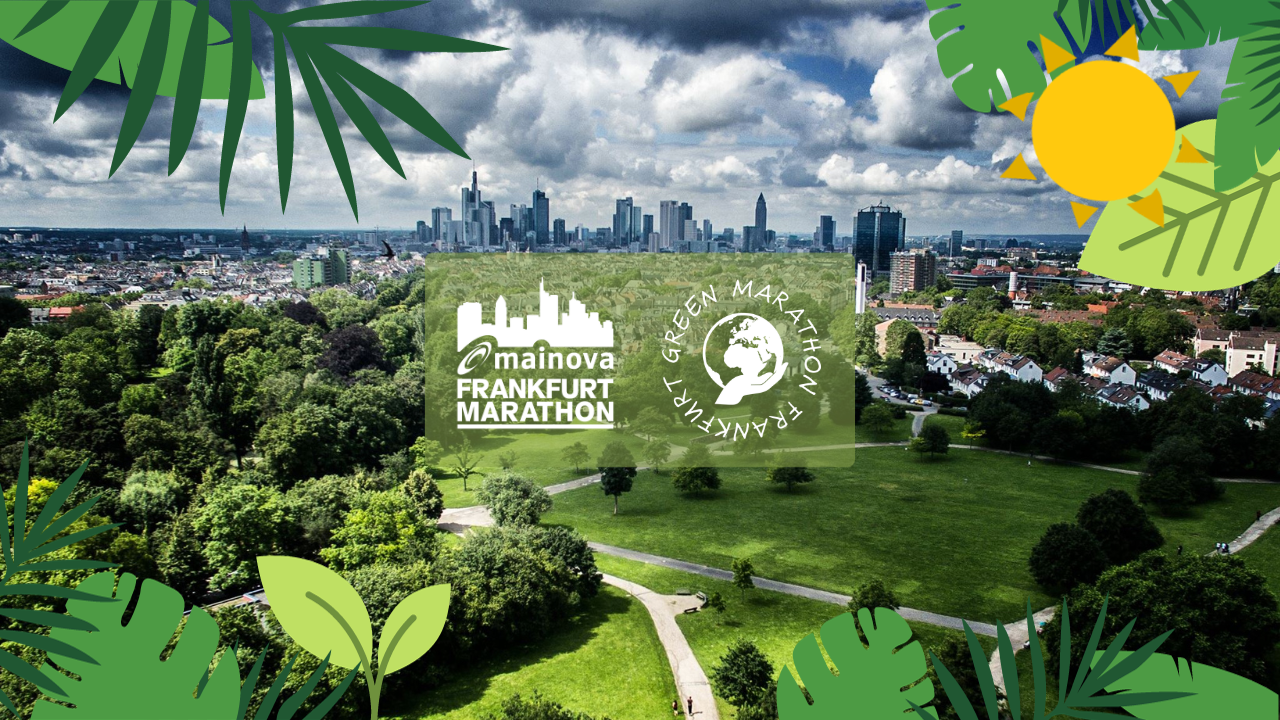The 40th anniversary of the Mainova Frankfurt Marathon is also a celebration of sustainability:
Since as early as 2005, the Mainova Frankfurt Marathon, in cooperation with all its partners, has been committed to putting on a sporting event that is not inextricably linked to a serious environmental sin. The declared goal is to achieve complete climate neutrality by 2030, making Germany’s oldest city marathon a pioneer for major sporting events in terms of environmental friendliness.
“At the beginning of our commitment, there were indeed major doubts as to whether the measures we were taking made sense,” admits Jo Schindler. “At all times, I wanted to avoid being accused of greenwashing for image purposes. After all, my motivation for becoming actively involved in climate protection was a very profound one: I intensively considered the question of whether and how we can justify an event that is all about people having fun having a negative impact on our environment. A city marathon consumes an extremely large amount of energy and produces vast amounts of CO₂ emissions. The answer to this mess has to be that we take countermeasures. From that point on, the motto was simply: don’t hesitate any longer, but tackle it as quickly as possible.”
The first measures were of a fundamental nature: The biggest energy guzzlers and climate sinners around the event were replaced or removed. As a further step, the athletes’ catering was switched completely to organically grown fruit. This resulted in a successful partnership with organic producer and supplier Querbeet. Querbeet is also celebrating a major anniversary this year by celebrating 30 years in business. Managing Director Thomas Wolff, himself a passionate marathon runner, looks back positively on the years of cooperation: “For us at Querbeet, just like for the Mainova Frankfurt Marathon team, it was clear that organic and sustainability only make sense if you think long-term and don’t stop at the one-off. Perseverance is rewarded – in environmental protection as well as in marathon running, which closes a circle for me. The optimal state as a runner is the Runnershigh and also in the cooperation with the Mainova Frankfurt Marathon we managed to get into such a flow where it just rolls.”
Over the course of time, projects have also been initiated with many other long-term partners of the Mainova Frankfurt Marathon, and gratifying successes have been achieved. Together with Messe Frankfurt, an emission-free heating of the shower water for all marathon participants as well as a waste separation system and a supply with “green electricity” could be enforced.
Together with the partner of the popular pasta party on the day before the marathon, Fattoria La Vialla, olive trees have been planted regularly in the company’s Tuscan home since 2017.
Incidentally, the energy at the Mainova Frankfurt Marathon also comes from nature: A total of three solar plants have been set up in Frankfurt, and since then they have been producing more than half of the electricity consumed during the week of the event. “Depending on the sunshine, sometimes it’s a little more, sometimes a little less than 60 percent,” explains Jo Schindler, “but to get to a hundred percent, we would definitely need two to three more plants.”
It is noticeable to the race director that he has not been satisfied with what he has achieved for a long time. But the means have long since proven to be effective, purposeful and, above all, worthy of imitation. So it’s no surprise that the Mainova Frankfurt Marathon team has set itself the task of setting a good example and getting everyone else on board as well: “We want to educate our participants and emphatically appeal to them to change their own attitudes. The topic of the environment concerns us all and together we can get the ball rolling even faster.”























